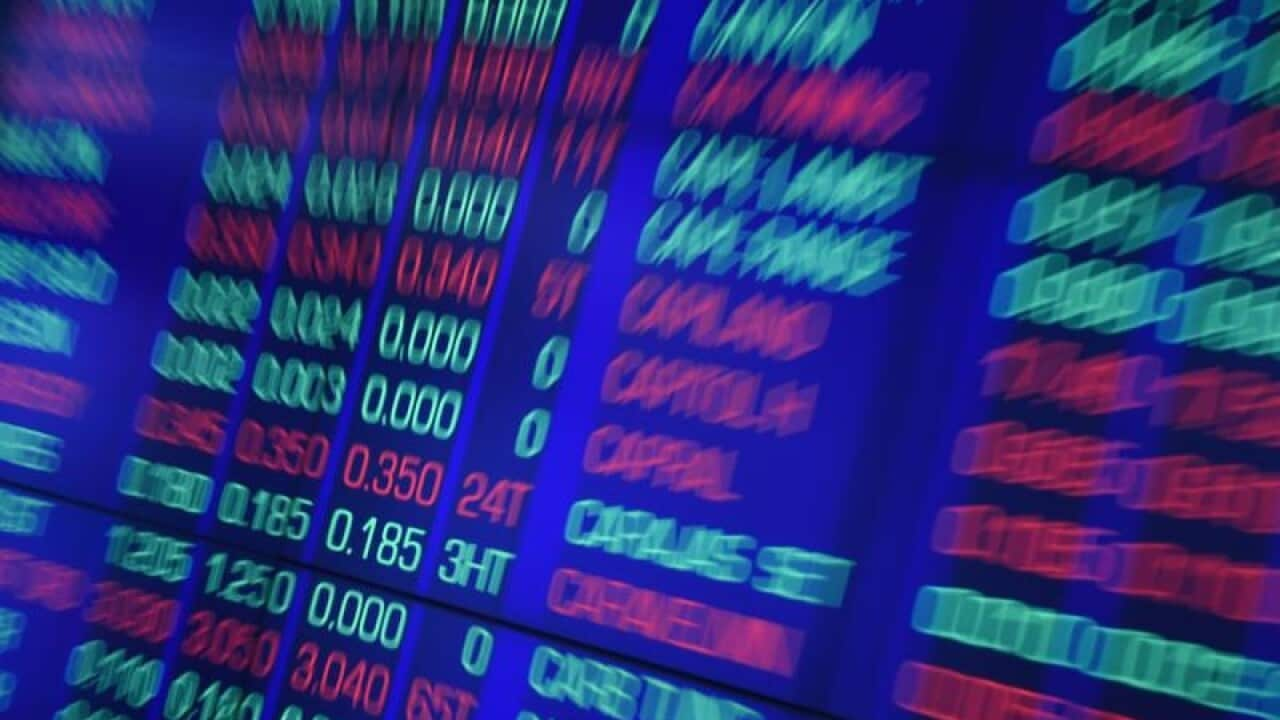The Australian share market is still trading lower at noon following the US government's announcement that it will impose tariffs on imported steel.
The benchmark S&P/ASX200 index was down 21.3 points, or 0.36 per cent at 1200 AEDT on Monday, with mining stocks among the worst performers.
Analysts say concerns around American plans to impose tariffs on steel and aluminium are still dominating the local bourse.
BHP Billiton was down 1.3 per cent at $29.24, Rio Tinto fell 0.9 per cent to $76.17, and Fortescue Metals backtracked 2.2 per cent to $4.80.
On Friday, Australia's biggest steel maker BlueScope closed 0.8 per cent higher at $16.325, with its significant US interests likely to derive some benefit from the proposed 25 per cent US tariff on steel imports.
But BlueScope was down 24 cents, or 1.5 per cent, at $16.06 on Monday.
Energy stocks were mixed after oil prices eased on Friday.
Santos fell 0.6 per cent to $4.89 but Oil search shares added 0.1 per cent to $7.23 after the two companies said it will take about eight weeks to restore production at their earthquake-damaged liquefied natural gas project in Papua New Guinea.
In the banking sector, the big four were 0.5 per cent to 1.0 per cent lower, with Westpac the weakest.
Retail Food Group plunged 65 cents, or 31.9 per cent, to $1.39 after the troubled Donut King and Gloria Jean's owner came out of a trading halt during which it said it will close up to 200 stores.
Shares in SEEK rose 25 cents, or 1.3 per cent, to $19.84 after the job advertiser said it will pay $157 million to buy out News Corp and become sole owner of its Asian subsidiary.
Meanwhile, the Australian dollar was slightly higher against the US dollar despite a fall in key commodity prices.
Asian markets sink
Asian markets turned negative again on Monday as the fallout from Donald Trump's steel and aluminium tariffs continues to feed concerns of a global trade war.
Equities went into a tailspin last week after the tycoon unveiled his plans for the controversial levies, and while US investors ended Friday on a slightly positive note, there is still the prospect of more volatility to come.
Trump ramped up his rhetoric at the weekend, tweeting that "Our friends and enemies have taken advantage of the US for many years", before adding "Sorry, it's time for a change!"
The move, part of the president's "American First" protectionist drive, was met with fury across the world with officials from Beijing to Brussels raising concerns.
"Uncertainty has lifted materially, folks, as countries react to the tariffs and a trade war and retaliatory measures loom as a real possibility unless President Trump finds a way to step back," said Greg McKenna, chief market strategist at AxiTrader.
Hong Kong led losses, falling more than one percent, while Tokyo finished the morning session 0.7 percent lower.
Shanghai shed 0.2 percent, with eyes on the start of China's annual rubber-stamp parliament, which kicked off its most significant meeting in a generation, preparing to offer Xi Jinping a lifetime mandate to rule the world's number two economy.
Premier Li Keqiang set a 2018 economic growth target at "around 6.5 percent", in line with expectations but lower than the 6.9 percent increase registered last year.
Sydney and Seoul each slipped 0.5 percent while Singapore was off 0.6 percent and Manila gave up 0.8 percent.
The dollar came under further pressure on worries about a trade war, with the safe haven yen extending last week's gains, helped by comments from the head of the Bank of Japan last week suggesting crisis-era stimulus could be scaled back from next year.
Stephen Innes, head of Asia-Pacific trading at OANDA, said: "Trump is carrying the seeds of the dollar's destruction.
"The economic fallout from trade duties would result in a toxic elixir of lower domestic growth and higher inflation, neither of which inspires investors confidence in the dollar."
The euro also got support from news that German Chancellor Angela Merkel would form a new government, ending months of uncertainty in Europe's biggest economy, though Italy was on course for a hung parliament after a weekend general election.

